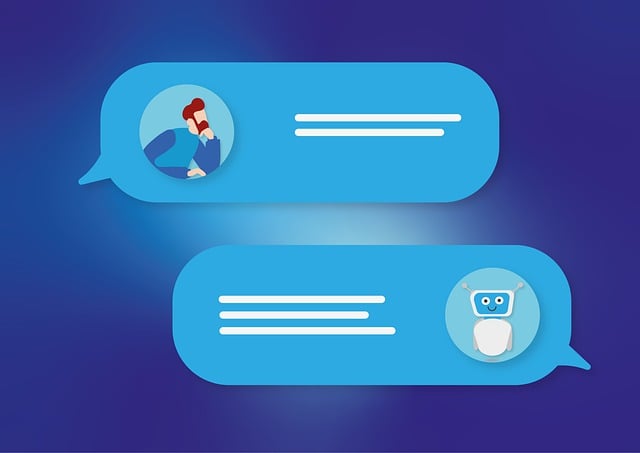AI chatbots online have transformed human-tech interaction with advanced natural language processing (NLP), enabling them to understand queries, generate contextually relevant responses, learn from interactions, and offer personalized experiences. Both AI and scripted chatbots are integral tools for businesses across sectors like customer service, lead generation, entertainment, and education. While scripted bots use pre-programmed scripts for consistent interactions, AI bots learn from experience. Despite challenges in understanding language nuances and data privacy, future advancements in NLP and Machine Learning promise to revolutionize customer service, healthcare, and education with enhanced user experiences and automation opportunities.
Scripted chatbots are transforming the way we interact with technology, offering personalized and efficient communication in various sectors. This article delves into the intricacies of AI chatbots online, providing a comprehensive understanding from concept to implementation. We explore how these chatbots operate using pre-scripted responses, highlighting their advantages in customer service, education, and more. Furthermore, we discuss challenges and future prospects, shedding light on the ever-evolving landscape of AI chatbot technology.
- Understanding AI Chatbots Online
- How Scripted Chatbots Work
- Benefits and Use Cases
- Challenges and Future Prospects
Understanding AI Chatbots Online

AI chatbots online have transformed the way we interact with technology, offering sophisticated and human-like conversations. These virtual assistants leverage advanced natural language processing (NLP) algorithms to understand user queries, generate contextually relevant responses, and learn from each interaction. As a result, ai chatbots online can provide personalized experiences, solve complex problems, and even engage in casual conversations, making them indispensable tools for businesses looking to enhance customer service, streamline operations, and improve engagement.
Navigating the vast landscape of AI chatbots online, one discovers a diverse range of applications. From customer support and lead generation to entertainment and education, these chatbots are embedded in various platforms, including websites, mobile apps, and messaging services. Their adaptability and scalability make them accessible to businesses of all sizes, empowering them to deliver efficient, 24/7 assistance to their users while reducing operational costs and workload.
How Scripted Chatbots Work

Scripted chatbots operate by leveraging pre-programmed responses and rules to engage in conversations with users. Unlike AI chatbots that learn from interactions, scripted bots are designed with a specific set of scenarios and predefined answers. When an online user sends a message or asks a question, the chatbot’s algorithms analyze the text and match it against these programmed scripts. If a match is found, the chatbot delivers the corresponding response, creating a conversational flow that appears natural to the human user.
This method ensures consistency in how scripted chatbots interact with users across various platforms, including social media and messaging apps. AI chatbots online employ this technique to handle frequently asked questions (FAQs), provide basic customer support, or even engage in casual conversations. The effectiveness of these bots lies in their ability to deliver quick, accurate information while reducing response times for user inquiries.
Benefits and Use Cases

Scripted chatbots offer a multitude of benefits for businesses and organizations looking to enhance their digital interactions. One of their key strengths lies in providing consistent, 24/7 customer support through AI chatbots online. These bots can handle a high volume of queries simultaneously, reducing wait times and improving customer satisfaction. By leveraging natural language processing, they understand and respond to user inputs accurately, making them powerful tools for lead generation, sales assistance, and product recommendations.
Use cases for scripted chatbots are vast and varied. They can be deployed on websites, messaging platforms, and social media channels to provide personalized experiences. For instance, in the e-commerce sector, AI chatbots online can assist customers in finding products, answer sizing or compatibility questions, and even guide them through the checkout process. In education, they can offer tutoring services, answer common student queries, and provide resources for self-learning. Additionally, scripted chatbots are valuable in customer relationship management (CRM) systems, streamlining processes like data entry, scheduling, and follow-ups, thereby increasing operational efficiency.
Challenges and Future Prospects

Despite their remarkable capabilities, AI chatbots like those found online face several challenges that hinder their broader adoption and integration into various sectors. One significant challenge is the intricate task of training models to comprehend nuances in human language, including context, sarcasm, and subtle emotions, which can lead to misinterpretations and subpar responses. Additionally, ensuring data privacy and security remains a critical concern as these chatbots often process vast amounts of user interactions, raising ethical considerations regarding data ownership and usage.
Looking ahead, the future of AI chatbots is promising. Advancements in natural language processing (NLP) technologies will empower chatbots to engage in more sophisticated conversations. The integration of machine learning algorithms can enable them to learn from user interactions, continuously improving their accuracy and adaptability. As these chatbots become more contextually aware and capable of handling complex queries, they are poised to transform customer service, healthcare, education, and numerous other fields, creating new opportunities for enhanced user experiences and efficient automation.
AI chatbots online have evolved from simple rule-based systems to sophisticated tools that enhance customer engagement, streamline operations, and offer personalized experiences. While scripted chatbots still dominate the market due to their predictability and ease of development, understanding their capabilities and limitations is crucial as we navigate the future of human-machine interaction. As technology advances, expect to see more advanced AI chatbots that better understand context, intent, and emotion, paving the way for even more innovative use cases across industries.
